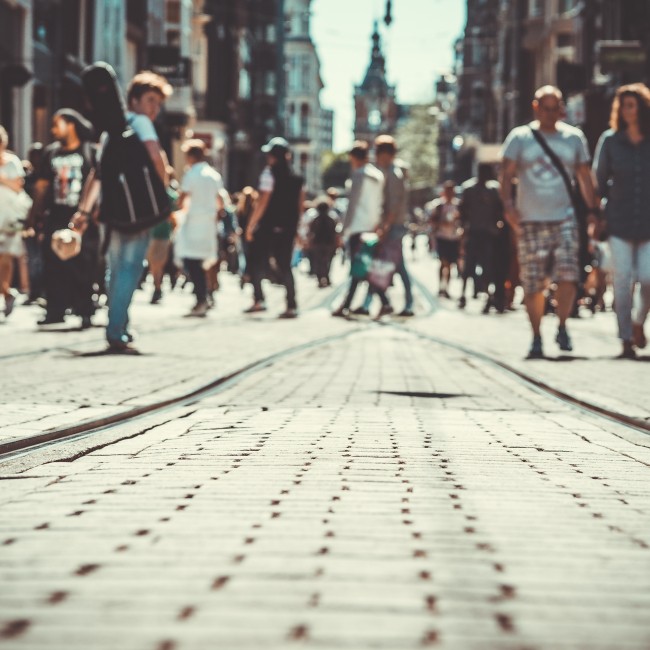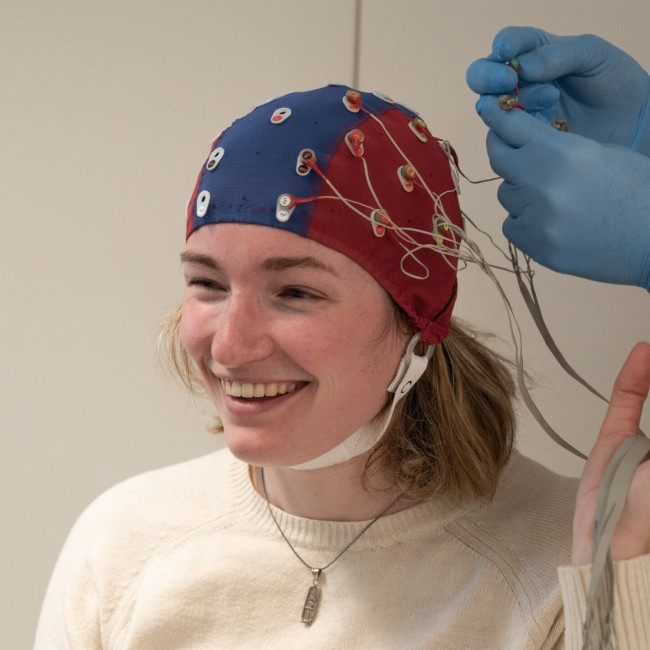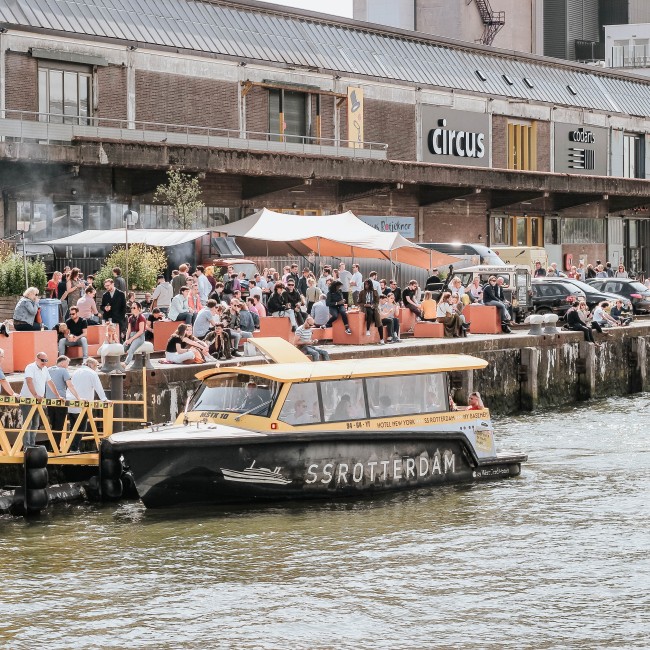Come and meet us
Walking around on campus is the best way to truly experience BUas. Sign up for one of the upcoming events or activities.
Why choose this master's degree at BUas?
- Recognised by WLO as a World Leisure Centre of Excellence
- The only academic master’s programme in Leisure and Tourism in the Netherlands
- Multidisciplinary approach; strongly related to topics in the international leisure and tourism industry
Study overview
Course content
Our leisure time is a vital resource that can be used for creative and physical activity, building relationships, forging identities and developing skills. The experiences that fill our leisure time are provided by an industry which accounts for 6% of the workforce in the Netherlands. The phenomena of Leisure and Tourism are increasing in complexity and require an integrated and multidisciplinary approach. Courses of this academic master’s programme build on knowledge and expertise from various fields such as sociology, psychology, economics, management and leisure management.
Research themes
You will work on two important research themes: Experiences & Storytelling and Place-making & Events. The programme is divided into two phases. In the first phase you will take courses like Understanding Leisure and Tourism Attractions and Events, Leisure, Creativity and Space, and Experience Marketing in Leisure and Tourism. In the second phase you will work on your graduation. You will prepare for this in seminars together with other students, after which you will write your individual master's thesis.
Programme content
The programme consists of two phases. The aim of the first phase is to provide context in the form of master’s courses. In the second phase you will work on providing your own content to the field in the form of your master’s thesis. A complete overview of the curriculum, course content and learning objectives can be found in the study guide.
The programme covers 12 months and is made up of two main phases:
- Phase 1 - Master's courses on leisure in a network society
All five master’s courses in this first phase will have a dynamic set-up in the sense that they are positioned within the context of leisure in a network society. The master’s courses centre on the two main current research programmes in leisure and tourism: Experiences & Storytelling and Placemaking & Events.
Leisure, Creativity and Space
This master’s course discusses recent insights into the processes of globalisation, mediafication and commercialisation and their impact on the changing role of leisure in the design of public and private places and spaces.Understanding Leisure and Tourism Attractions and Events
Recent insights and research in the field of change management, innovation, networks, co-creation, attractions, theme parks, and ‘eventful cities’ are the key ingredients of this master’s course.Organizing Strategy and Entrepreneurship (at Tilburg University, with reservations)Central in this course is the idea that our world is evolving in a rapid pace and that we are in direct need of a ‘transformative change’ of our society and the role of organizations. In this course the focus is on organisation strategies by taking a ‘systematic approach’ and ‘serious gaming’ as strategic instrument.
Experience Marketing in Leisure and Tourism
As marketing is a key instrument in the leisure and tourism industry, the master’s course in Experience Marketing will immerse you into the field of marketing and market research, zeroing in on the leisure and tourism industry and the experience economy. The pros and cons of various research techniques is one of the topics addressed in this course.Analysing Leisure Interactions
You are introduced to the field of practice theories and core concepts of leisure and tourism studies. You will work in groups to study issues related to authenticity, new media or happiness.- Phase 2 - Master's thesis
To ensure a smooth progression from the course and content phase (phase 1) to the thesis phase (phase 2) you will first attend the Seminar Leisure Studies to select and elaborate a thesis topic. A structured process leads to the finalisation of your individual thesis proposal. This proposal culminates in a research thesis on a theme which has academic and societal relevance.
Study load and coaching
The Master of Science Leisure and Tourism Studies is a one-year, full-time programme. The total study load is 60 ECTS credits, including the final project. To give you an idea: 1 ECTS credit = approximately 28 hours of study a week.
The master's programme consists of two semesters. In the first semester, you will spend a lot of time at BUas. In the second semester, you will work independently on your research proposal and thesis. This can also be done from abroad, in consultation with your graduation supervisor and the coordinator of the programme.
- Semester 1
In the first semester, you will spend about three to four days on the BUas campus and until the autumn break you will also attend lectures at Tilburg University.
Example of what a week may look like (the schedule may vary from week to week):
Monday
- 13.00 – 15.00 hrs Lecture: Organizing Strategy and Entrepreneurship (Tilburg University)
Tuesday
- 09.00 – 11.00 hrs Lecture: Experience Marketing in Leisure and Tourism (BUas)
- 13.00 – 15.00 hrs Lecture: Understanding Leisure and Tourism Attractions & Events (BUas)
Wednesday
- 10.00 – 12.00 hrs Group project: Organizing Strategy and Entrepreneurship (Tilburg University)
- 14.00 – 16.00 hrs Lecture: Leisure, Creativity and Space (Buas)
Thursday
- 09.00 – 11.00 hrs Seminar on the individual assignment for Understanding Leisure and Tourism Attractions & Events (BUas)
- 12.00 – 17.00 hrs Independent study
Friday
- 10.00 – 12.00 hrs Presentation on graduation topics (BUas)
- 13.00 – 15.00 hrs Group project: Experience Marketing in Leisure and Tourism (BUas)
- Semester 2
In the second semester, you will work on your research proposal and thesis. To this end, you will take part in several meetings of the Placemaking & Events or the Experiences & Storytelling research group. During these meetings, you will discuss the progress of your research proposal and thesis with your graduation supervisor and other lecturers/researchers. In addition, you will receive individual supervision.
We offer you a small-scale study environment as the number of students involved in this master's programme are limited. For questions about course content, lecturers can be easily reached. In addition, the master's coordinator is available to help with day-to-day issues. If you wish to discuss personal problems that may be affecting your life as a student, you can turn to the student counsellor.
Student well-being
BUas encourages and helps you to make the most of yourself, whatever your circumstances. Maybe you have a chronic illness, are a family carer, a competitive athlete, or juggle your studies with running your own business? Our study coaches, student counsellors and student psychologists are here to help. Do you need extra support or advice? Or extra facilities? Then take a look at the options here.
Teaching method
In the Master of Science Leisure & Tourism Studies, you will attend lectures on experiences, placemaking, events, destinations, leisure behaviour and many other interesting topics. You will also work on individual assignments in the form of papers or presentations focusing on a specific theme. Group projects involve conducting research for real clients.
There are some written, oral and open-book examinations. You will graduate individually by writing a research proposal and developing it into a scientific thesis. The programme is small-scale, with plenty of room for personal attention.
Guest lectures, field trips and company visits
During the master's programme, you will attend several guest lectures. You will also visit a city or other location related to the Leisure, Creativity and Space course. Think, for example, of the Spoorzone in Tilburg or the Westergasfabriek in Amsterdam. The location is different every year.
In addition, you can join the field trip, which is organised every year by the Leisure Studies study society.
Professional versus academic master’s degree
The level of education in both forms is the same. Both the professional master's and the academic master's degrees are hard work and the number of ECTS credits is the same. Yet there are some differences.
The biggest difference lies in the nature of research undertaken. A professional master's degree focuses mainly on practical application within the professional realm. In contrast, an academic master’s degree emphasises the cultivation of research skills, theory and knowledge development. So, are you more practice-oriented? Then a professional master’s would be a prudent choice. Conversely, if theoretical exploration appeals to you, an academic master’s would likely suit you better.
What makes this study programme unique?

Research
During the master's programme, you will join a research group of talented scientists and researchers (Experiences & Storytelling or Placemaking & Events). There are many contacts with industry and research agencies. These contacts can help you collect data and conduct research.
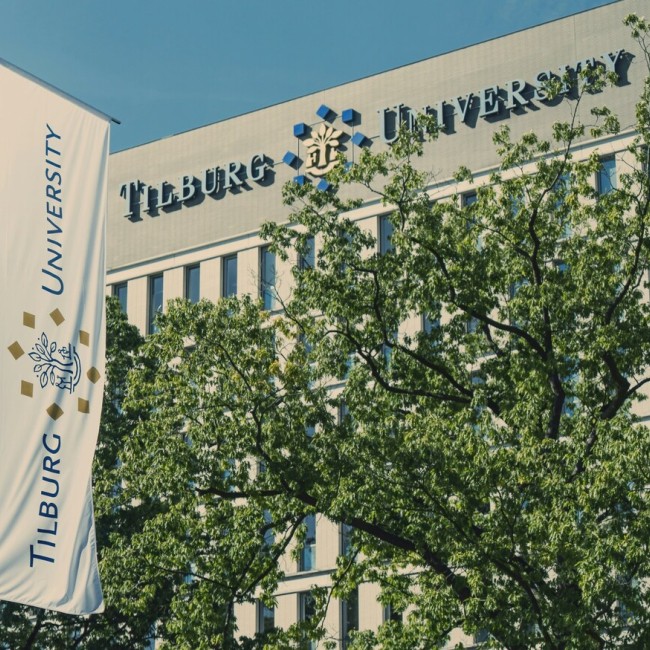
Study in Tilburg
Besides studying at the Breda campus, during the first semester you will also regularly visit Tilburg University's beautiful campus. So, in addition to the small-scale location in Breda, you will also get a taste of studying at a research university.

International
There are no lectures in the second semester. This gives you the opportunity to conduct research for your thesis abroad and write it there. You can attend the research group meetings online and you will be in close (online) contact with your thesis supervisor. In short, you have the flexibility to choose the location where you work on your thesis.
Admission & application
What are the admission requirements?
Students who have successfully completed one of the academic bachelor's programmes or pre-master's programmes of BUas have direct access to the programme. If you have successfully completed an academic bachelor’s degree in any of
Information about admission requirements
What does this study programme cost?
In the academic year 2025-2026 the tuition fee for master's programmes is €2,601.In addition, you should take extra costs for software, excursions, etc. into account.
How can I apply?
If you meet the admission requirements, you can apply for this study programme. You can apply until 15 August, but you are encouraged to apply before 1 July because of the summer holidays.
Find out if this study programme suits you
Seeking a master’s programme in tourism, leisure, or imagineering? Take this short quiz to discover the best match for you.


A unique insight into visitor experience

My knowledge and experience are very diverse

Making students enthusiastic
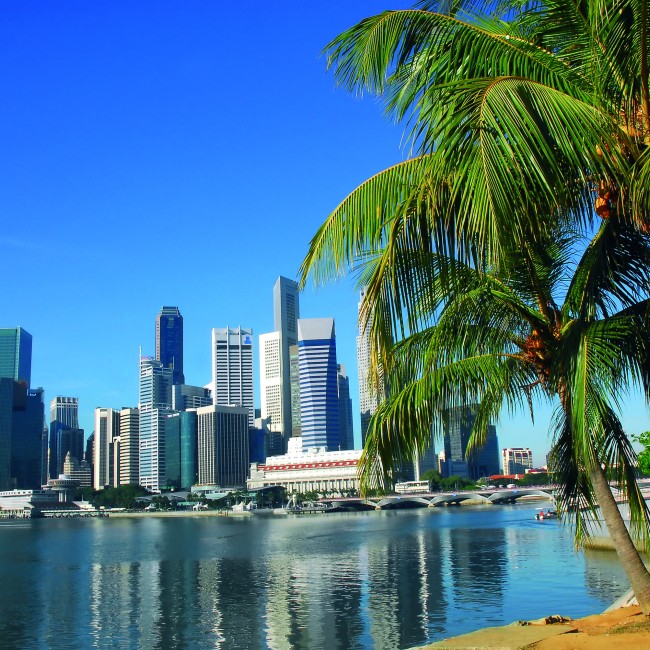
What can you do after your studies?
Completion of the Master of Science Leisure and Tourism Studies will offer you a range of career opportunities in leisure and tourism management, policy, research and education.
After your graduation you are entitled to the degree of Master of Science.

Virtual campus tour
Have a virtual look and discover the Ocean building where you’ll be studying and what more the campus has to offer.

Get inspired!
Read more about projects, research and insights in the leisure industry.
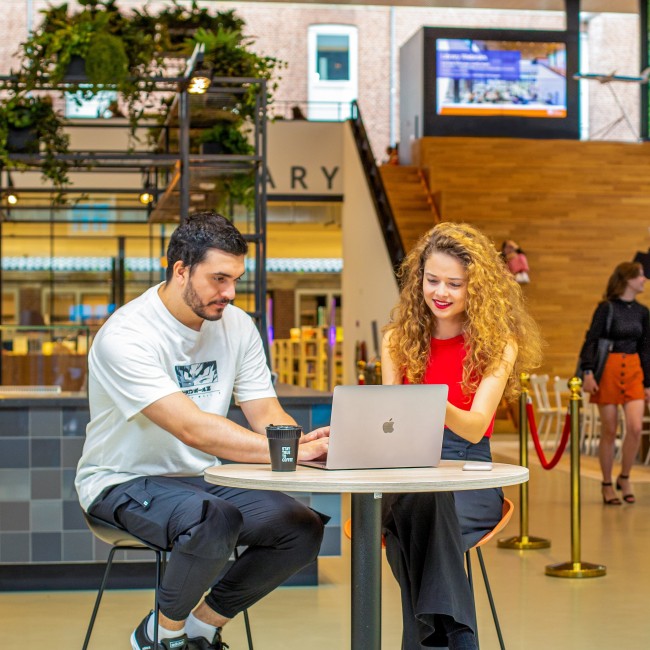
Help with choosing your study programme
Do you want to continue after your bachelor's or further develop your professional skills and are you looking for a master's? Discover, compare and choose your master's programme at BUas.

